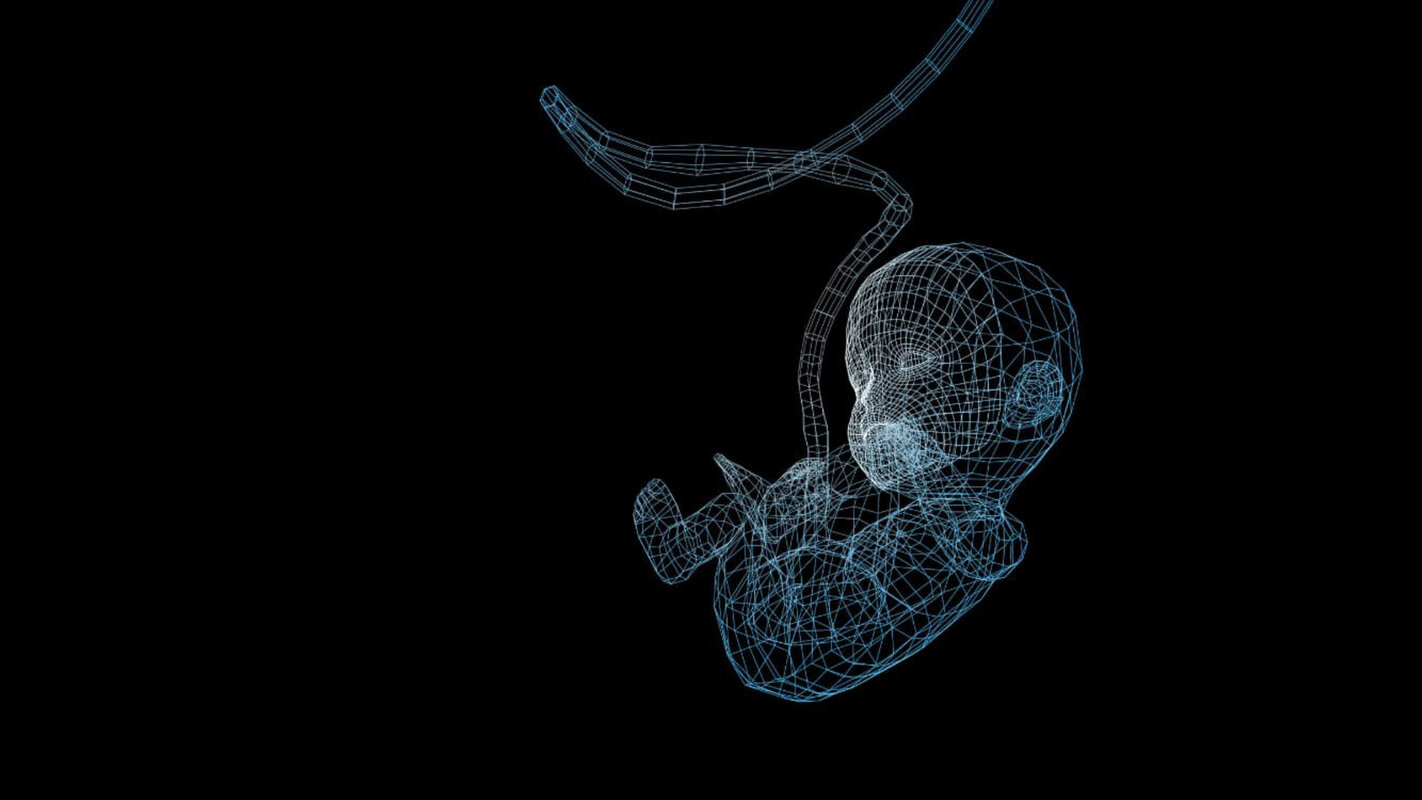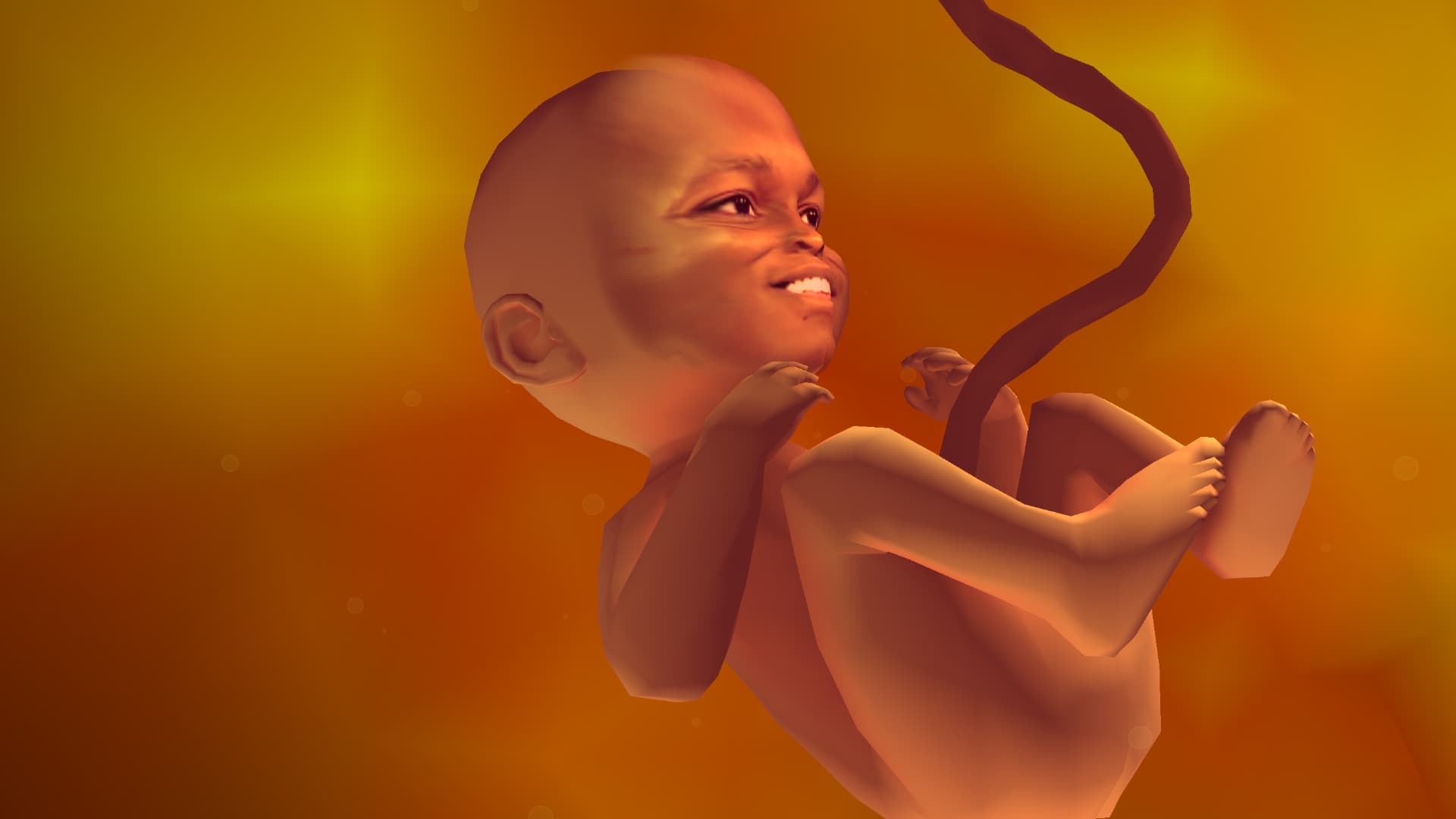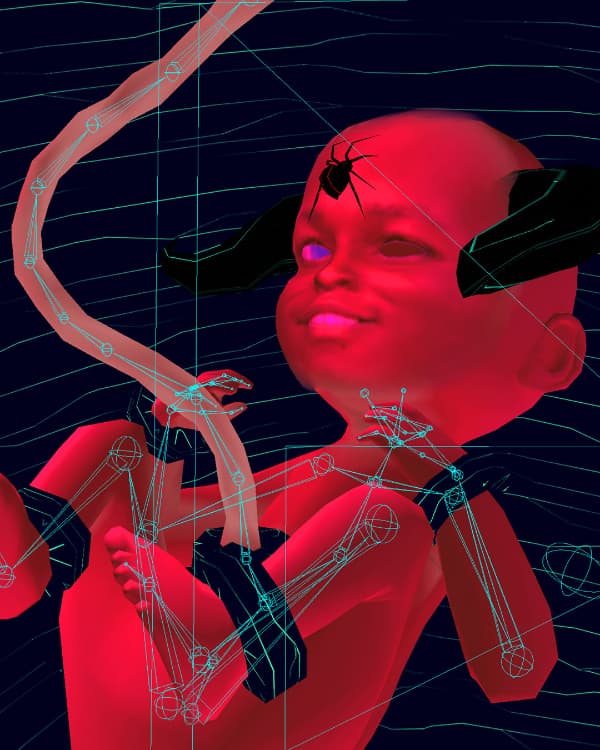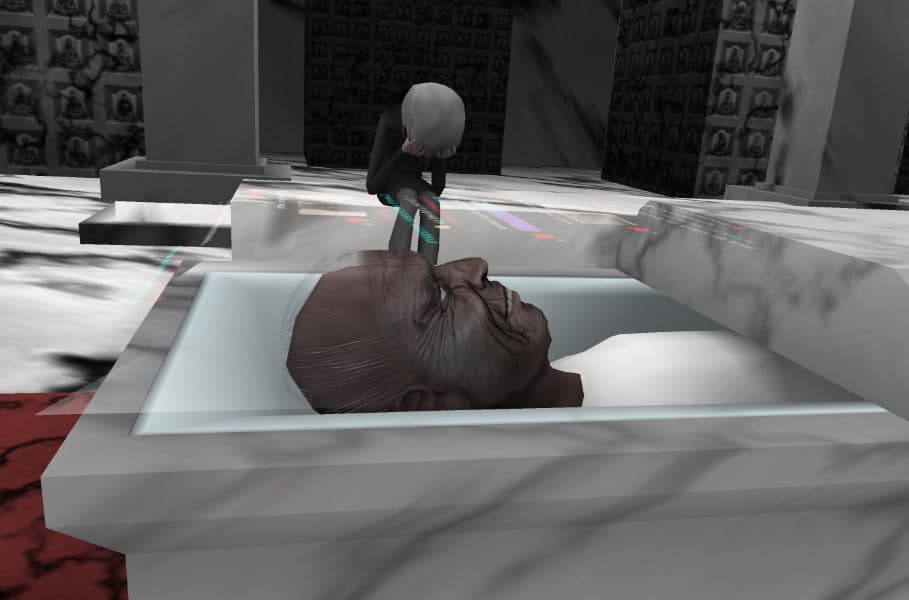
David OReilly: The Uncharted Territories of Face Filters
David OReilly is a multidisciplinary artist based in Los Angeles. Starting his career as an independent animator, he created numerous award-winning short films, has written for TV shows such as Adventure Time and South Park and created the fictional video games in Spike Jonze’s movie Her. David is the creator of the iconic game Mountain and the universe simulation game Everything.
Pictoplasma: You seem to seamlessly shift through genres – first you shook things up in the world of animation film, then we saw you go into games and redefine the media, so to speak, and now you're working with face filters. How much of a challenge is it for you to keep establishing yourself in new areas?
David OReilly: I suppose that from the outside, it does look like I’m jumping from thing to thing. These mediums have different people pushing them, different tools that are used to make them and different people writing about them. But there’s a common thread running through it all, which is this evolution of 3D software, or more generally, a form of 3D – you could even say 4D, or even dimensions beyond that.
Essentially, it's still one journey. I am just looking at what's available and trying to adapt and not be too nostalgic for older forms that would hold me back. When I started out with 3D animation, which is now considered a very established form, it had this feeling of being very, very new and if you were jumping into that, then it was almost as though you were leaving ‘the real animation’ and going off to explore some other new artistic thing.
Another thing connecting the way I work with all of this is the fact that I've almost always used real time rendering, even in the animated works. Almost all of my animation films are rendered in real time, basically from screen capture. That includes the Adventure Time episode and U2 video and even commercial things. They were all rendered in a very simple way.
Leaving the technical side of things for a moment, we know that your filters have been extremely popular. How is that measured? In downloads or clicks? Can you give us a brief idea of how popular they are?
They're measured in views. I wish I knew exactly how many different individuals look at them. I only have the numbers of people who open them in some form or other, whether they open their own version or my version or someone else's post or whatever. But that number is in the billions. Over approximately two billion views. People make around 100,000 videos a day with my effects, which always surprises me! If I make a new one, I’ll get millions of views per day. Sometimes there are mini-explosions. For example, right now there's an Indonesian comedian who’s built a whole career using a part of one of my effects.
"There' this element to it that you can't control; what people will do with it or how they'll react."
Is that nice for you? Is it flattering or does it feel a bit strange?
It's brilliant. I absolutely love it. With this kind of work – and maybe this will sound cliched or sentimental or whatever – it’s really only completed when other people start filling it up. I'm not a performative sort of person; I don't think I've ever posted myself using these particular effects, but I absolutely love that other people do so.
There's this element to it that you can't control; what people will do with it or how they'll react. That's the nature of all games and interactive stuff. You're only bringing 50 percent and then the people bring the other half. I feel that all art is interactive in this way, and I don't want to say it only happens with interactive stuff, but it's more obvious or clear.

Seeing how your face filters reverberate on such a global scale, is it necessary to limit them to one very easy, understandable story so that everyone in the world can understand? A story such as ‘birth and death’, as in Simulation (2019)?
It's easy to look at my effects now and say they are clearly designed for mass-consumption or a mass-market. People had been making effects and filters on Instagram for about a year or so before I started making my effects, but nobody had done anything similar to any of these things.
It makes sense to create something that has immediacy because people’s minds are conditioned to only sustain an entropy or an interest level for about three seconds when it comes to effects. People aren't used to these effects continuing beyond three seconds.
The Simulation effect lasts about two and a half minutes and has this quite elaborate narrative that takes place, using your face as the main character.
Usually, face filters are meant to enhance or beautify appearance and identity, the expression of self. But we don't see that at all with your face filters. We see ‘David’ in these filters because you are hijacking the users to tell a story. You are interested in narration, in a way that face filters usually aren't. That's what makes your face filters so complex; you are not just applying a new form or a new self on someone. You are hijacking their face. You are casting them, if you like, to star in your movie.
My first experiments with the effects were all distortions; how to distort someone's face in a way that wasn't necessarily beautiful. The most popular effects on Instagram are decorative, adding makeup, sparkles and things like that. These are by far the most popular. I have absolutely no interest in that, and that comes from a very fundamental place: I don't think anything is more beautiful or compelling or interesting than the reality that enters our eyes. When you start to decorate that, you might as well be putting clown makeup on everything. This kind of decoration is beautiful in its own way, but only in how it reveals the specifics of how we define beauty and the limitations of that. To be honest with you, I have a repulsion to a lot these effects that have a ‘plastic surgery’ type of result.
I know that Facebook has been trying to clamp down on that. It's one of the few things they're doing that I feel glad about. Obviously, people can do whatever they want, but effects that enable a kind of virtual plastic surgery are very, very difficult to justify. I think that they will warp our image of ourselves.
"They've been preparing for this dystopian reality for quite a while, and they've got it."
If you look at the discussion forums for augmented reality effects, most people are complaining that their ‘plastic surgery’ effect isn't getting them 100,000 followers quickly enough. It's sad. I don't want to impose my morals on anybody, but I don't find this stuff interesting on a creative level. We're dealing with uncharted territory in playing with images of ourselves. Instagram is already doing a lot of damage at a basic level by promoting certain types of beauty. The direction of this whole thing is not very interesting.

Do you think that the pandemic times will have any influence on how these filters and this whole culture develops?
Of course. Now we appear in digital form more and more. Most interactions that we're having with one another are virtual. We’re all used to Zoom and Skype and whatever else. A lot of people that were working in AR and VR were publicly decrying the tragedy of the pandemic and privately celebrating it, because they've been preparing for this dystopian reality for quite a while, and they’ve got it.
They're happy.
Yeah, I think they're secretly high-fiving inside their heads. Inside their brain are two virtual hands clapping. And they're saying: Thank God I've devoted my life to a world where humans never have to actually see each other.
I have one last question for you. You have made an incredible name for yourself as an independent filmmaker and then you became an independent game-maker. Would you now consider yourself an independent face filter maker?
Many different people – agents, managers, musicians and companies and so on – have asked me to make more advanced effects for their brands and I've said no to every single one. That is motivated by the fact that it is impossible to be independent with the filters because they are very much tied into formats that exist and are not yet open formats. It's wonderful that I can create a virtual world that operates like the real time world, and people can access it by just tapping something without downloads or drivers, no crap.
The confluence of technologies in a phone, even in an app like Instagram, is stunning. That's why I'm drawn to this. The form in which a filter exists is a bunch of mathematical nodes, just endless webs. In order to develop this in a truly open way… there is no tool to do that yet.

As an artist trying to express yourself, you are now completely dependent on, locked in by and tied to Instagram or Facebook, which is the same thing anyway, as Facebook owns Instagram.
Yeah, absolutely. I don't create effects for hire partly because most people are not looking for something that's particularly interesting or ground-breaking. But it's also because there is a quiet, unspoken race between what happens in the world of art – I'm not talking about ‘the art world’, but the world of creativity – and the world of commerce. We’ve seen it for the last twenty years; somebody creates something interesting in the animation world, independently, then it just gets eaten and torn apart by agencies and brands, other actors, people who are more commercially focused, until you forget all about the original. This has happened to almost every interesting animator since the dawn of time.
But for the last thirty years, let’s say, it's been very obvious. Therefore, I think it's very positive that somebody like me, a person just by myself, without a team, can basically create works that are so far ahead of what any agency can do. That's a really rare position to be in. All the interesting things are happening at the level of individuals, and I think that's a great thing.
Interview by Pictoplasma on the occasion of Pictoplasma In Isolation, 2020
- 295 views
- 0x empathy